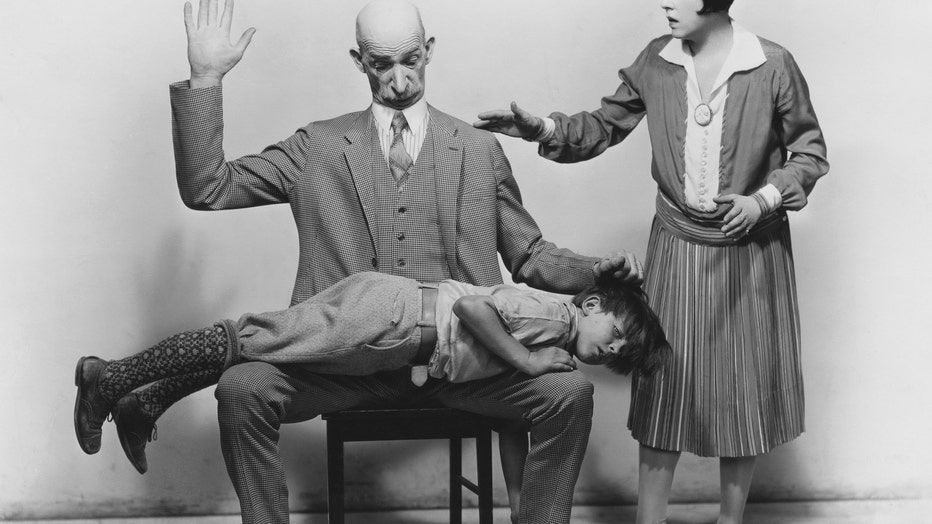Spanking worsens children’s behavior, study finds
LOS ANGELES - A new study found that corporal punishment, like spanking, doesn’t yield positive results in a child’s behavior and could in fact inflict real harm.
The findings were published Monday in The Lancet after researchers looked at 69 previous studies from several countries including the United States, United Kingdom, Canada, China, Colombia, Greece, Japan, Switzerland, and Turkey. Some results showed a mix of negative and positive outcomes of parents using corporal punishment, but most showed a negative impact of the disciplinary action.
Researchers collected the data and drew several conclusions regarding physical punishment: it can increase problems in a child’s behavior over time, it’s not associated with positive outcomes over time and increases the risk of involvement from child protective services.
RELATED: Lawmaker arrested for child cruelty says he spanked daughter
The study’s senior author Elizabeth Gershoff said her team realized that physical punishment led to "increased aggression, increased antisocial behavior, and increased disruptive behavior in school." She also noted that some studies showed a dose-response effect, whereas when the physical punishment increased in frequency so did the negative behavior such as arguments and disobedience.
"Physical punishment is increasingly viewed as a form of violence that harms children," the study read. "The consistency of these findings indicates that physical punishment is harmful to children and that policy remedies are warranted."
More and more studies have highlighted the negative impact of physical punishment.

Joe Murphy, Fay Tincher and Jackie Morgan as the Gumps (Photo by �� John Springer Collection/CORBIS/Corbis via Getty Images)
In 2018, the American Academy of Pediatrics strengthened its advice against spanking and other physical punishment because of the potential for long-term harm. The group said that can include aggression, brain changes, substance abuse and suicidal behavior in adulthood.
RELATED: Spanking can pose long-term harms to children, 5-decade analysis suggests
So what’s the alternative?
The academy said spanking is no more effective than non-physical punishment, including timeouts, setting firm limits and establishing unwanted consequences. The group also suggested putting favorite toys away or reducing screen time.
However, spanking remains a common form of discipline across the world.
A 2017 UNICEF study showed 250 million children (around 6 in 10) worldwide are punished by physical means.
In the U.S., all 50 states have given parents the legal right to use physical punishment. However, 19 states allow schools to use physical punishment although some local school districts have banned the practice.
But there is a shift in newer parents staying away from physical discipline. A 2020 study showed parents who reported spanking a child decreased from 50% in 1993 to 35% in 2017.
The Associated Press contributed to this story. This story was reported from Los Angeles.

